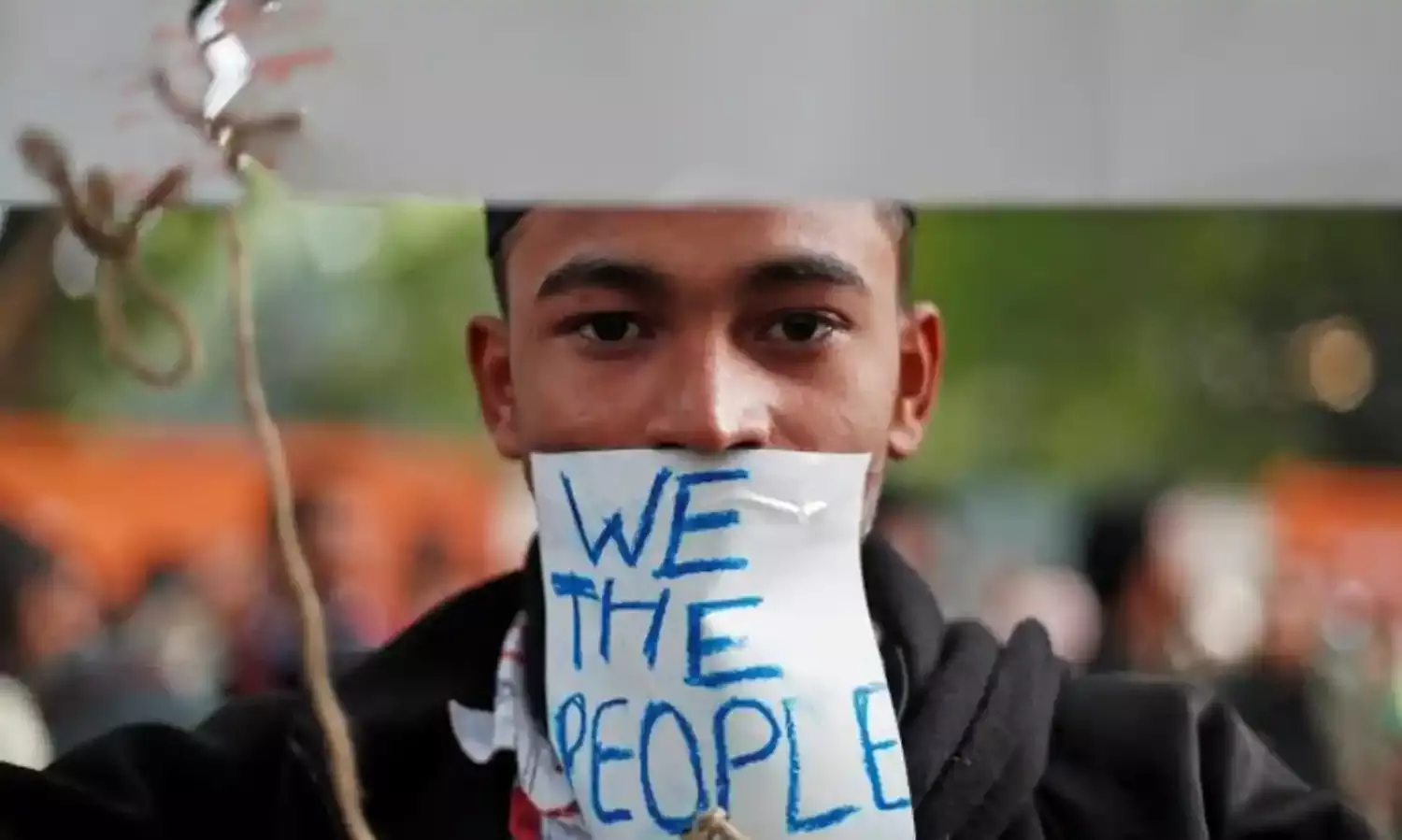CAA and Police Brutality: What The World Is Saying
International statements and media coverage

India has captured international media headlines, with the global press covering the protests over the Citizenship Amendment Act and the police crackdown that followed.
Meanwhile, over 100 Harvard University students wrote an open letter to the government of India, expressing their solidarity “with the protest regarding the Citizenship Amendment Act, 2019” and “deep condemnation of the violent suppression of student protestors at the Aligarh Muslim University, at the Jamia Milia Islamia University, and elsewhere.”
Emphasising the fact that protests and dissent are essential for the secular and demcratic fabric of the nation, the students wrote - “The violent suppression of protesters by the police, the use of teargas, lathi charges, and physical assault in response to peaceful dissent, and the police forces’ forceful entry into university campuses and consequent Internet blockades there are all deeply reprehensible,”
“It is important to note that these events are in violation of rights to due process, public association, and dissent.”.
“The consequences of this range from an attempt to redefine what it means to be Indian and who counts as Indian to questions on what will happen to future climate refugees, such as, for instance, those living in low altitude areas of Bangladesh who might be in need of refuge,” the letter said.
The letter comes as in the wake of increasing global attention on India, with headlines focusing on the bill and police brutality.
An article in the New York Times, raised questions on the intentions of the bill and the curbing of dissent, pointing out that the police beat “unarmed students.”
“Mr. Modi’s government has responded by calling out troops, shutting down the internet and imposing curfews, just as it did when it clamped down on Kashmir. In New Delhi, police officers beat unarmed students with wooden poles, dragging them away and sending scores to the hospital. In Assam, they shot and killed several young men.” said authors Jeffrey Gettlemen and Maria Abi-Habib.
The article further outlined the participation of Indian Muslims and progressives alike and a sense of desperation in the protests. “India’s Muslims had stayed relatively quiet during the other recent setbacks, keenly aware of the electoral logic that has pushed them to the margins. India is about 80 percent Hindu, and 14 percent Muslim, and Mr. Modi and his party won a crushing election victory in May and handily control the Parliament. But Indian Muslims are feeling increasingly desperate, and so are progressives, many Indians of other faiths, and those who see a secular government as fundamental to India’s identity and its future.”
In a scathing article in The New Yorker, writer Dexter Filkins questioned the Modi government’s “anti muslim-rhetoric” and the suppression of criticism and dissent.
“The big question is where Modi’s campaign ends. The future does not look promising: Kashmir is an open-air prison, with Internet cut off, mobility curtailed, and soldiers crawling the streets. In Assam, the site of the new citizenship registry, the Indian government is planning to build a network of detention centers. The new path-to-citizenship law seems to herald a future in which Indian Muslims are accorded second-class status. Since 1947, the Muslims of India have been distinguished by their widespread refusal to embrace radicalization. If the present circumstances carry on, it seems likely that many of them may conclude they have no other choice.
The campaign waged by Modi and his fellow Hindu nationalists has done immense damage to the legacy of Gandhi and Nehru and their vision of a secular Indian state. As the demonstrations there are proving, democracy may be the one thing that can save it.”
Concerned with police brutality and the use of excessive force on even non-protesting students, the British Broadcasting Company (BBC) says that it received reports that few students were shot. This despite the police’s insistence earlier that students were not fired at.
In an article, on their website, they wrote- “Indian police have denied shooting people during protests in Delhi - as anger at a citizenship law spreads across the country.
At least three people said they were shot, but police said their wounds were caused by broken tear gas canisters.
The BBC has seen the hospital report of one person who thought he was shot. The report said doctors removed a "foreign object" from his thigh.”
The Guardian, in an article on their website, also put into question the wider international implications of the conflict as it played itself out over the last few days.
“The images of students and Muslims, two groups who claim to be targeted by the Modi government, coming under attack by police, appear to have crystallised a wider feeling of unease about the direction of the world’s largest democracy. In an extraordinarily diverse country, they may provide a rare national rallying point for discontent.
They also come at a time of renewed scrutiny of India’s human rights record in Washington and European capitals in the wake of the Kashmir decision.”
The article detailed the government’s response, in particular the Prime Minister’s statements in a rally in Jharkhand. “On Sunday, the prime minister played to his base, telling a rally in Jharkhand state that those who were violently opposing the citizenship law could be “identified by their clothes” – taken to mean to their Muslim religious garments,” wrote the British daily.
According to a Reuters report released on December 13, The United Nations Human Rights Office has also condemned the Citizenship Amendment Act, claiming that it is “fundamentally discriminatory in nature,” as it promotes exclusion of Muslims
The UN-HR spokesperson Jeremy Laurence called for the Act to be reviewed, saying- “We understand the new law will be reviewed by the Supreme Court of India and hope it will consider carefully the compatibility of the law with India’s international human rights obligations.”
(Cover Photo: REUTERS)



